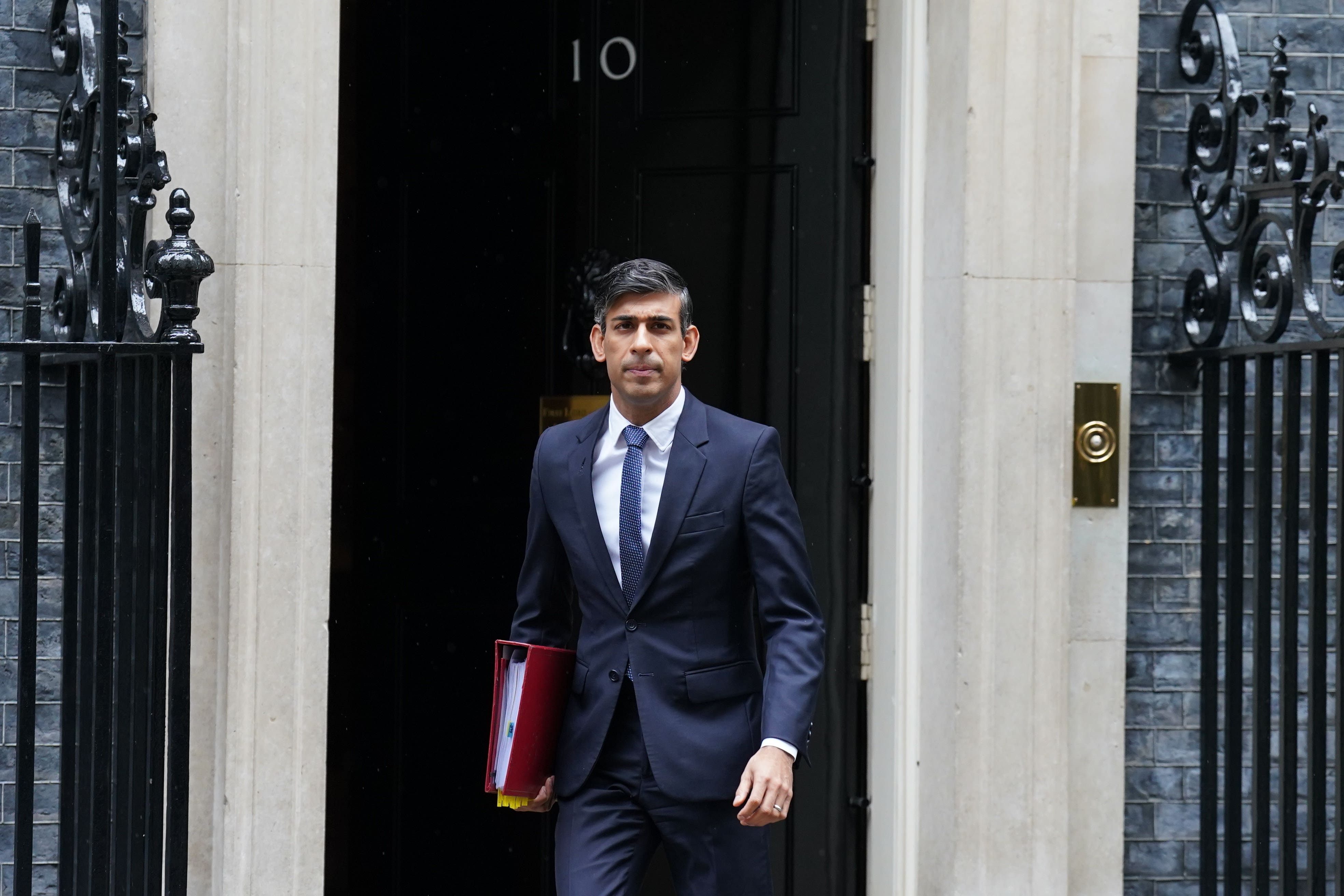One year in power: how to mark Rishi Sunak’s report card
After a year in 10 Downing Street, there’s room for improvement says John Rentoul


Rishi Sunak was under no illusion when he accepted the King’s invitation to form a government a year ago about the scale of the task facing him. His first job was to restore order to the public finances after the disaster of Liz Truss and Kwasi Kwarteng’s “fiscal event” a month earlier.
Truss and Jeremy Hunt, her emergency chancellor, had reversed some of the most damaging measures, but Hunt and Sunak now had to prepare for an autumn statement – in effect a new Budget – to try to stabilise the situation.
Any attempt to assess the achievements and mistakes of Sunak’s first year needs to start with his success in calming the markets. Labour has exploited the turmoil by selling the message that Truss had caused lasting damage by “crashing the economy”, but interest rates were going up worldwide anyway, and Hunt and Sunak did well to limit the fallout.
What else has Sunak done well?
Sunak’s rebalancing of relations with the European Union, and in particular his friendship with Ursula von der Leyen, the European Commission president, helped him to chalk up three achievements.
He succeeded in rewriting the Northern Ireland protocol – which the EU had insisted could not be reopened – to sort out many of the problems left by Boris Johnson and Lord Frost’s botched negotiation. So far, the result of what Sunak branded the Windsor Framework has been “Not for EU” labels on some goods in Northern Irish supermarkets, but it has failed to coax the Democratic Unionist Party back into devolved government in Belfast.
Then Sunak signed a deal with Emmanuel Macron, the president of France, to step up the policing of French beaches in an attempt to reduce the number of small boats crossing the Channel. It is not clear how much difference this agreement has made, although the numbers are down a little compared with last year.
Finally, Britain rejoined the Horizon programme of EU scientific cooperation, which is in the interest of both sides.
And what has gone badly?
In an act of political naivety in January, Sunak set out his five priorities for the year, which succeeded only in drawing attention to some of his failures. Those 12 months are not up yet, but his five pledges are heading for trouble. His promise to halve inflation, if it is delivered, will only just scrape under the statistical wire (namely 5.3 per cent inflation in December), emphasising how much higher inflation has been than expected.
Growth is stalling. Debt is still rising. NHS waiting lists continue to be a disaster. They have been made worse by strike action by doctors, but it is no use the prime minister blaming them. And the boats have not been stopped.
Meanwhile, other public services are in a parlous state. Social care remains unfixed. The criminal justice system is weighed down by court backlogs and prison overcrowding. The railways are blighted by strikes.
What about those ‘long-term decisions for a brighter future’?
Sunak tried to change the subject at his party conference this month, by claiming to have taken difficult decisions for the long term that his predecessors had ducked. Recalibrating net zero targets and scrapping the next stage of HS2 demonstrate either prudent common sense or a woeful lack of ambition, depending on what you believe, but neither is likely to make much difference when people come to vote.
Nor is a progressive ban on smoking and some changes to A-levels that will take years to take effect.
What do the opinion polls say?
The Conservative Party was 26 points behind Labour in the opinion polls immediately after Sunak took over; that gap has closed to 18 points now.
But Sunak’s personal ratings have declined. He started off reasonably well – not as favourably regarded as the Labour Party or Keir Starmer, but some way ahead of the Conservative Party. A year ago, 25 per cent expected him to be a good or great prime minister, according to YouGov. Now, only 11 per cent think he has been. Those rating him poor or terrible have risen from 29 per cent to 50 per cent.
Still, if the election is on Thursday 24 October next year or later, he may today be only halfway through his premiership. Plenty of time to improve his score.






Join our commenting forum
Join thought-provoking conversations, follow other Independent readers and see their replies
Comments